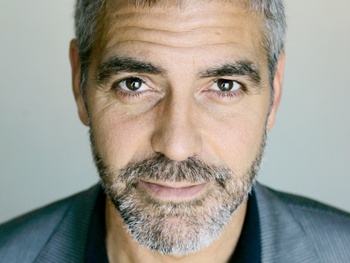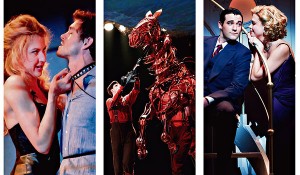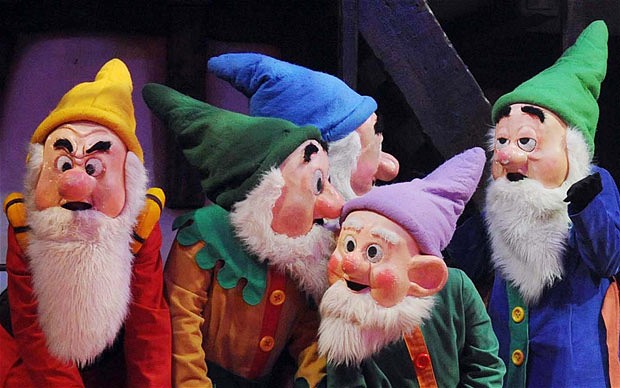I read an article today entitled "Without Hype, Playwriting Thrives" in the New York Times' Arts Beat Blog. This article resonated with me very deeply. Written by Charles Isherwood, this critic takes a look back at theatre during 2011, and discovers many surprises as he reminisces...
After making a list of his favorite works over the last 12 months, for the first time in a long time, Isherwood was pleased to share that his list of favorite shows this year did not include one revival, nor one musical. This demonstrates that after a lull, theatre is truly making a comeback.
In the last few years, Broadway has attempted to produce shows that they hoped would be box office hits that appealed to as many people as possible. As a result, there seemed to be a great lack of artistry in these works. Instead, musicals like Shrek, Spider-Man, and others have attempted to lure in as many people as possible to generate a profit. In doing so, the theatre was extremely underwhelming. However, in the list that Isherwood puts together, he highlights the years most provocative, new works that reminds us artists that there is still hope yet and the revival of theatre itself is on its way up...
Below, I have included his list of new plays and a small brief on each of them. Reading this article has really allowed me to narrow in on what I want to see the next time I'm able to make it to the city. My only hope is that these stellar new works will still be running...But thats an entirely different fish to fry...
¶‘BELLEVILLE’ Amy Herzog emerged in just a little over a year as a fully developed playwriting talent. Last year her “After the Revolution” made my list, and this year she wrote two plays of distinction, in intriguingly different styles. “Belleville,” which I saw during its premiere run at Yale Repertory Theater, blends elements of a straight-up psychological thriller into a keenly observed examination of a young couple’s disintegrating marriage.
¶‘BENGAL TIGER AT THE BAGHDAD ZOO’ Rajiv Joseph’s dark comedy about the chaos consuming the lives of soldiers and one grumpy tiger in the immediate aftermath of the American invasion of Iraq was a challenge for Broadway audiences, even with the beloved comic actor Robin Williams portraying the feline victim. But this richly imagined play, directed with finesse by Moisés Kaufman, depicted with a bold lyricism the murky world of warfare from the perspective of both the soldiers on the ground and the Iraqi citizens.
¶‘BLOOD AND GIFTS’ J. T. Rogers’s incisive study of the roots of the American involvement in Afghanistan was as dramatically engaging as it was rooted in the complex history of the region. Bartlett Sher’s lucid hand at the helm, and a winning performance by Jefferson Mays as a jaded British operative straight from the pages of a Graham Greene novel, helped turn what might have been a dry history lesson into an evening of theater that entertained even more than it edified.
¶‘4000 MILES’ The second of Ms. Herzog’s plays to make my list, this delicately drawncomedy-drama featured superlative performances by the veteran Mary Louise Wilson, as an aging lefty grandmother, and the talented newcomer Gabriel Ebert as her grandson. Their genial relationship deepens when he spends a few weeks in her New York apartment after a cross-country bike trip marred by tragedy. The best news: this wise, funny and heartfelt play will return to Lincoln Center Theater in the spring, with the cast intact.
¶‘JERUSALEM’ Mark Rylance is an actor of such protean gifts that he manages to turn his Tony acceptance speeches into quirky displays of bravura (albeit slightly irritating ones). In the roistering Rooster of Jez Butterworth’s elegiac play about the dimming fortunes of an England in decline — the lone London import on my list — he gave one of the great performances of the year, finding the spiritual beauty in a study in willful dissipation.
¶‘KIN’ Bathsheba Doran’s ensemble comedy-drama was an evocative exploration of the manner in which each human life touches gently on innumerable others. Sam Gold, who has become a sought-after director for his ability to mine every nuance of feeling in this kind of layered, naturalistic play, was at his finest here, bringing his tender, whispering touch to Ms. Doran’s story of interlocking lives.
¶‘THE ____________ WITH THE HAT’ Stephen Adly Guirgis’s comedy with the unprintable name was worth every four-letter word. An exhilarating head rush of a play, expertly directed by Anna D. Shapiro, it was enlivened even further by a fiery performance from Bobby Cannavale as an ex-con fighting to stay sober and keep the tenuous lifeline connecting him to his equally troubled ex-girlfriend from snapping.
¶‘SONS OF THE PROPHET’ In the standout play of the fall season, the playwright Stephen Karam depicted a kaleidoscope of human suffering with both biting humor and boundless compassion. The gifted actor Santino Fontana led a flawless cast, portraying a young man plagued by a mysterious ailment who also has to cope with the sudden death of his father, the failing health of a troublesome uncle, and a needy boss also battling the brutal fates.
¶‘VENUS IN FUR’ David Ives brought a moribund Broadway genre, the sex comedy, roaring back to life with his sneaky two-hander about a sexually fraught encounter between a desperate but calculating actress and a high-handed playwright-director. Reprising the role that made her a name to watch when the play was first produced Off Broadway, Nina Arianda gives a performance that reaffirms one’s belief in that elusive thing known as star quality.
¶‘THE WALK ACROSS AMERICA FOR MOTHER EARTH’ The only true downtown entry on my list, this insightful, gently satiric and play by the drag performer and writer Taylor Mac depicted a ragged band of freak-flag-waving activists treading from coast to coast to protest the depredations being visited on the planet. With this fully realized play, Mr. Mack established himself as a dramatist of more expansive gifts than even his most ardent followers might have imagined.


 When Chloe and I were in New York last month, we waited in line for a few hours to try and get student rush tickets to Venus in Fur at the Manhattan Theatre Club. We were shunned. The show (which closes tomorrow) has had an incredibly popular and successful run on Broadway for the past few weeks. It's one of a series of shows on Broadway that are part of non-profit theatre companies making a splash on the Great White Way. The big thing about non-profit theatre is that it is subscriber based. Their seasons are pre-planned with each show having a confirmed open and close date. However, with theatre companies like Lincoln Center, the MTC, and the Public having such smash hits on their hands, they're finding ways to extend the runs and continue rolling in the bank. Shows like War Horse, Anything Goes, and Venus in Fur are being extended long past what their subscribers has believed.
When Chloe and I were in New York last month, we waited in line for a few hours to try and get student rush tickets to Venus in Fur at the Manhattan Theatre Club. We were shunned. The show (which closes tomorrow) has had an incredibly popular and successful run on Broadway for the past few weeks. It's one of a series of shows on Broadway that are part of non-profit theatre companies making a splash on the Great White Way. The big thing about non-profit theatre is that it is subscriber based. Their seasons are pre-planned with each show having a confirmed open and close date. However, with theatre companies like Lincoln Center, the MTC, and the Public having such smash hits on their hands, they're finding ways to extend the runs and continue rolling in the bank. Shows like War Horse, Anything Goes, and Venus in Fur are being extended long past what their subscribers has believed.
